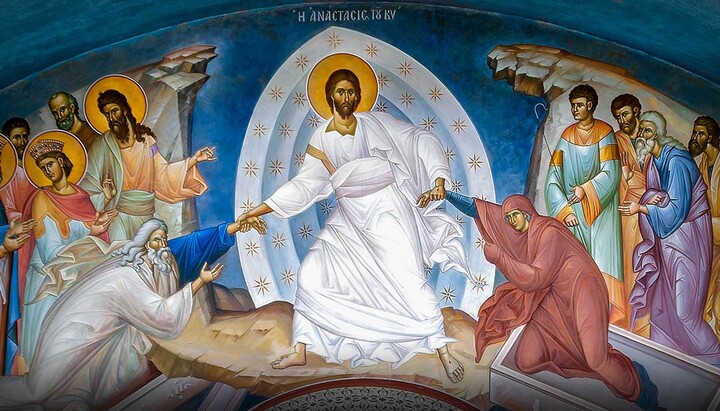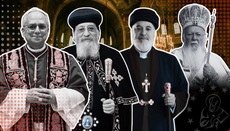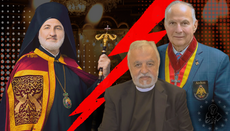Paschal Homily of St. Gregory the Dialogist

Holy Saturday—April 4, 454
Indeed, the greatness of this ineffable mystery, dearly beloved, exceeds the reach of human understanding and any possibility of being described. Likewise, the triumph of the Lord's Passion has a loftiness far above the most outstanding abilities and most eloquent tongues. Yet we should rejoice rather than be embarrassed about being overcome by the dignity of so great a subject matter. No one could think less adequately about it than someone who thought that what had been said would be sufficient. Consequently, it would not be superfluous for us to preach something we have preached before. Nor should someone speaking about divine matters fear the peevishness of carnal ears-as if these things are to become contemptible simply because they are brought to mind by frequent repetition. On the contrary, it pertains very much to the coherence of Christian
faith-according to the teaching of the Apostle—that "we should all say the same thing and be perfect in the same understanding and in the same knowledge.
Unfaithfulness, of course, which is the mother of all errors, gets broken apart into many opinions that it considers necessary to color in with the art of speaking. But the witness of truth never withdraws from its own light. It is the weakness of our vision—and not a variegation of the light-that causes it to shine less for some and more for others. Following the help of enlightenment from above, my words must also render service to [this light]. Since you are "the cultivation of God, the building of God, may he grant that both distributor and receiver should measure up, for he knows how to collect a just interest for his outlays.
Know, dearly beloved, that in going over this text of the Gospel reading-to which you paid close attention, the one dealing with the glory of Christ's Cross-all the mysteries of
these divine utterances have been disclosed to you. Rejoice that whatever the shadows of the Old Testament used to veil beneath the testimonies of prophets has been brought out into the open through the mystery of the Lord's Passion. As a result, the various kinds of sacrifices and the different means of purification have come to a halt. As a result, the precept of circumcision, the distinction between foods, the Sabbath rest, and the killing of the paschal lamb have ceased—since "the law was given through Moses, but grace and truth have come about through Jesus Christ.
Figures came first so that their fulfillment could follow. When the reality which had been announced finally arrived, there was no longer any need for the services of heralds. Reconciliation of the human race was conducted in such a way that the salvation which comes in Christ should have been available to all generations under the same justification. Delaying [this salvation] was a calculated move. It had the advantage of causing those things which were believed long before they actually took place to be honored without interruption. When the strength of faith has been established in those things that do
not lie open to our vision, heavenly doctrine treats us more leniently, us whom it has put off until these times. To help us understand more easily, we benefit from many more prophets and witnesses than former ages.
What the sacred Gospels, "written by the finger of God," tell us about the Passion of the Lord Jesus Christ, accept without a shadow of hesitation. Consider this series of past events to be as clear as if you were in contact with them all through physical sight and touch. Let true divinity and true humanity be believed in Christ. He is flesh who is the Word. As he is of one substance with the Father, so he is of one nature with his Mother—not doubled in person, not confused in essence; in his power not subject to suffering; in his lowliness subject to death; but so using both that his strength could glorify weakness but weakness could not obscure strength.
He who contains the world allows himself to be apprehended by persecutors. He is killed by the hands of those in whose hearts he has not been received. Justice does not resist the unjust, and truth yields to false testimonies. Remaining "in the form of God," he fills out the "form of a servant. He confirms the reality of his physical Birth by the severity of his physical Passion. Yet to undergo this was for the Only-Begotten and eternal Son of God not occasioned by necessity but motivated by mercy, so that "from the standpoint of sin he might condemn sin, and that "he might destroy the devil's work" as a result of the devil's work.
That enemy of the human race introduced a deadly wound into the whole world for the sake of destroying it in its very foundations, while the captive offspring of the seed surrendered to him could not parry his iron-clad rights. Consequently, in so many generations subjected to him by the law of death, when he 'saw one among the children of men whose power he marveled at as exceeding that of all the saints who ever lived, this enemy thought himself secure about the continuance of his prerogative if no merits of justice would have been able to overcome the power of death.
By wildly arousing his servants and his mercenaries, he was raging toward his own destruction. Though he felt that a man whom he could kill was beholden to him somehow, in avenging the likeness of nature, he did not see the freedom of his unique innocence. He was not mistaken about his race, but he was deceived about his guilt. First Adam and Second Adam were one with respect to human flesh but not when it came to their respective work. In the former "all die." In the latter "all will be brought to life." The former, through his love of pride, made his way to misery. The latter, through the strength of his humility, paved the way to glory. For this reason had he said: "I am the Way, the Truth, and the Life"—the Way, in the form of a righteous life; the Truth, in the anticipation of a sure thing; the Life, in the realization of eternal joy.
Jewish godlessness, dearly beloved, as well as the devil's pride, did not recognize this mystery of great compassion. "For if they had known, they never would have crucified the Lord of Majesty. But, since the design of God's mercy lay hidden from the enemy of the human race, "God in Christ reconciling the world to himself, was concealed behind the veil of flesh. So the devil continued to rage against someone in whom he could find nothing that belonged to him. It would rather have benefitted his malice if he would have been sparing and would have refrained from pouring out the blood of one through whom the captivity of all was to be released and their liberty restored. Yet "darkness did not overwhelm" the light, nor could lying blindness see the wisdom of truth.
So the Lord's gentleness maintained its constant patience. While the strength of the angelic legions that waited on him was held in check, he drank the cup of sorrow and death, thereby transforming the entire affliction into triumph. Deceptions were overcome, and the powers of evil were suppressed. So the world received a new beginning in order that a condemned generation might not stand in the way of those whom regeneration was helping to be saved. "Old things have passed away, and all things have been made new." For, through him and with him, a share both in the Passion and in the eternity of the Resurrection belong in a similar way to all those believing in Christ and reborn in the Holy Spirit. As the Apostle says, "You have died, and your life has been hidden with Christ in God. When Christ your life will appear, however, you too will appear with him in glory."
Grounded in this hope, then, dearly beloved, avoid all the craftiness of the devil. He lays traps not only through the lusts of flesh and carnal allurements. But, scattering the cockle of falsehood even among the seeds of faith themselves, he is eager to harm the cultivation of truth, to uproot with wicked errors those whom he could not corrupt with evil deeds. Flee the arguments of worldly doctrine and avoid the poisoned words of heretics. Let there be nothing in common between yourselves and those who are Christians in name only because they oppose the Catholic Faith. They are not the "temple of" God's "Spirit" nor "members of Christ." Instead, tangled up in false ideas, they have as many faces of the devil as they do idols of falsehood.
Freed from these evils through the Lord Jesus Christ, who is "the Way, the Truth, and the Life," let us bear all the temptations of that "life" and all the battles with the exultation of faith. "If we suffer with him, we shall also reign with him." This reward has been prepared not only for those who have been killed for the Lord's name by the savagery of wicked people, since all of those serving God and living for God, as they are crucified in Christ, so are they to be crowned in Christ. This reward has been prepared indeed for those who, excelling in all glory, overcame fearful deaths and cruel torments by enduring them even to the point of giving up their lives. Yet it has also been prepared for those followers who have conquered the greed of avarice, the exaltation of pride, and the desires of sensuality by the mortification of their own flesh. Rightly does the Apostle say that "all those who wish to live in devotion to Christ suffer persecution." Undoubtedly this applies to anyone who is not a stranger to holiness.
Those celebrate the Paschal Feast properly who work "not in the yeast of the old malice, but in the unleavened bread of sincerity." They live no longer in the first Adam, but in the
second Adam, having been made members of the body of Christ, Christ who, "though he was in the form of God," condescended to become the "form of a servant." "In the one Mediator between God and human beings, Jesus Christ the human being," there would be both the fullness of divine majesty and the reality of human nature. Had the divinity of the Word not received this nature into the unity of his own Person, there would be no regeneration in the water of Baptism nor Redemption in the blood of the Passion. Since, however, in the mystery of Christ's Incarnation we have received nothing false, nothing in figures, not in vain do we believe ourselves to have died with him dying, and to have been raised with him rising. He himself who "works all things in all" remains in us, he who lives and reigns with the Father and with the Holy Spirit forever and ever.
Amen.









